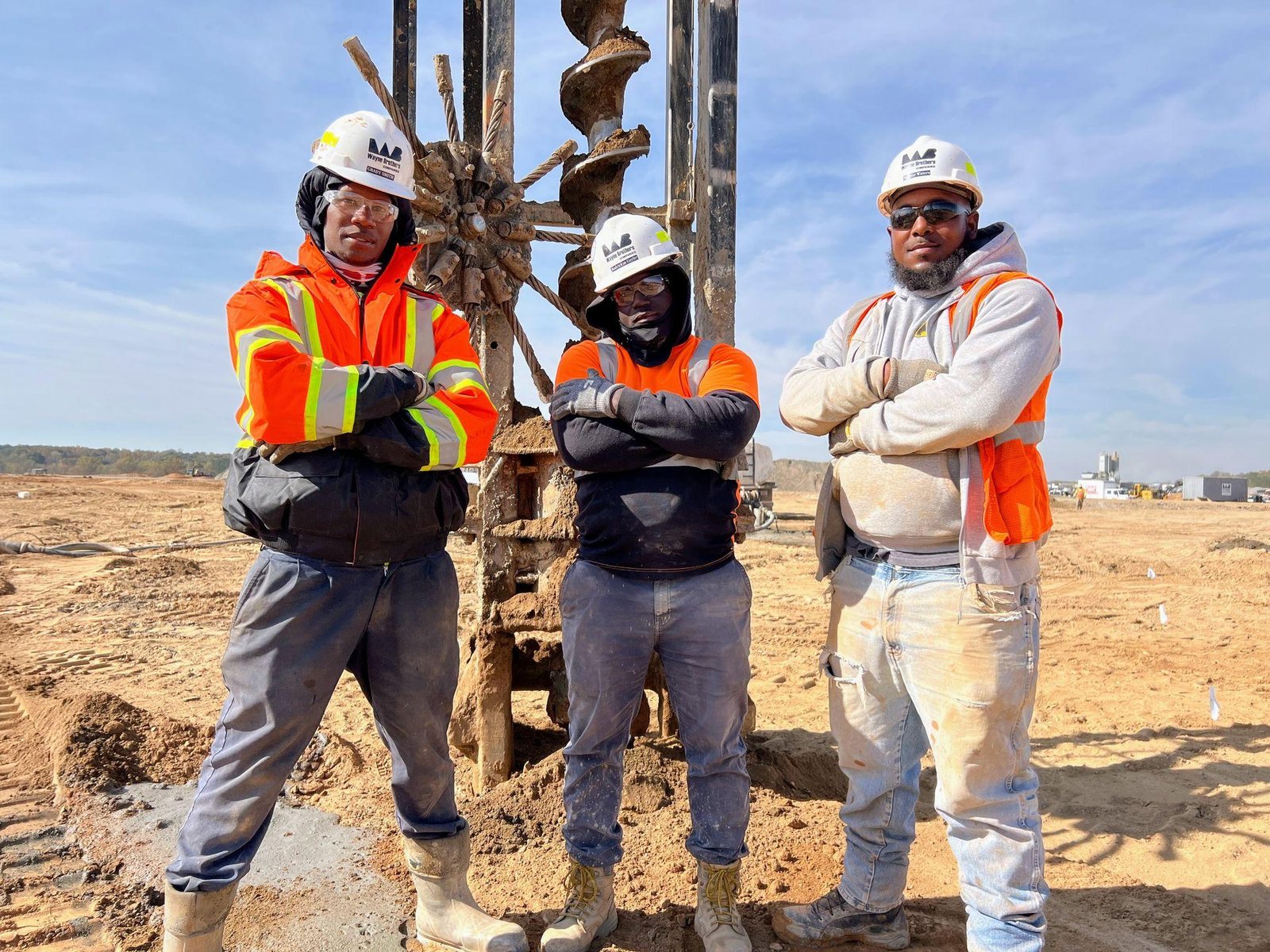كيف يعمل الإشراف الإنشائي؟ دليل لفهم العملية
الإشراف الإنشائي هو عملية حيوية في عالم البناء، حيث يلعب دوراً أساسياً في ضمان نجاح أي مشروع إنشائي. تشمل هذه العملية العديد من المهارات الفنية والإدارية التي يتم تطبيقها للحفاظ على تدفق العمل بطريقة فعالة وتحقيق نتائج عالية الجودة.
ومع ذلك، قد يكون فهم عملية الإشراف الإنشائي أمراً معقداً بالنسبة للكثيرين، ولهذا السبب نقدم لكم هذه المقالة للإجابة عن تساؤلاتكم حول كيفية عمل الإشراف الإنشائي والأسس التي يقوم عليها وأهمية هذه العملية في عملية البناء.
مفهوم الإشراف على البناء
يشير الإشراف الإنشائي إلى العملية التي يتم فيها إدارة ومراقبة جميع جوانب مشروع البناء، بدءاً من التخطيط وحتى التسليم النهائي. يتم تنفيذ هذه العملية من قبل مشرفي الإنشاءات الذين يتمتعون بالخبرة والمعرفة اللازمة لإدارة المشاريع الإنشائية بنجاح.
يتم تنفيذ الإشراف الإنشائي بمساعدة فريق عمل متخصص يتكون من مهندسين ومراقبين وفنيين وعمال، ويتم تنسيق جهودهم لضمان تنفيذ المشروع بطريقة فعالة وفي الوقت المحدد وبتكلفة معقولة.
أهمية دور المشرف على البناء
يعتبر دور المشرف على البناء أساسياً في ضمان نجاح المشاريع الإنشائية، حيث يقوم بإدارة ومراقبة جميع جوانب المشروع وضمان تنفيذها بطريقة صحيحة وفي الوقت المحدد. كما يلعب دوراً مهماً في تحديد المشكلات وحلها وتوفير الحلول الفعالة لضمان استمرارية تقدم المشروع.
بالإضافة إلى ذلك، يساعد المشرف على البناء في تحديد المخاطر المحتملة واتخاذ الإجراءات اللازمة للتعامل معها، مما يساعد في تجنب التأخيرات والمشاكل التي قد تؤثر على جودة المشروع وتكلفته.
مهام المشرف على البناء
تتضمن مهام المشرف على البناء العديد من الأنشطة الرئيسية التي يجب تنفيذها لضمان تنفيذ المشروع بنجاح. ومن بين هذه المهام:
- تخطيط وإدارة المشروع بشكل فعال وفقاً للمواصفات والمواعيد المحددة.
- مراقبة تقدم العمل وضمان تنفيذه بجودة عالية وفي الوقت المحدد.
- تنسيق جهود الفريق وتوجيههم لتحقيق أهداف المشروع.
- تحديد المشكلات والمخاطر المحتملة واتخاذ الإجراءات اللازمة للتعامل معها.
- التأكد من توافر المواد والمعدات اللازمة لتنفيذ المشروع.
- تقديم تقارير دورية عن تقدم المشروع والمشكلات المحتملة والحلول المقترحة.
مهارات وصفات يجب أن يمتلكها المشرف على البناء
يجب على المشرف على البناء أن يتمتع بمجموعة من المهارات والصفات ليكون قادراً على تنفيذ مهامه بنجاح. ومن بين هذه المهارات:
- القدرة على التخطيط والتنظيم وإدارة الوقت بشكل فعال.
- المعرفة الفنية اللازمة لفهم المشروع وتحديد المشكلات والحلول الفعالة.
- القدرة على التواصل والتعامل مع الفريق والعمل تحت الضغط.
- القدرة على اتخاذ القرارات الصحيحة والتعامل مع المخاطر بشكل فعال.
- المعرفة باللوائح والمعايير الفنية والأمنية المتعلقة بالبناء.
تقنيات فعالة للإشراف على البناء
تتطلب عملية الإشراف الإنشائي استخدام تقنيات فعالة لضمان تنفيذ المشروEffective Techniques for Construction Supervision
Construction supervision is a crucial process that allows supervisors to monitor the progress of work and ensure that it is being carried out according to set standards and regulations. It encompasses all stages of building a structure or project, from planning the structure to its completion. In this guide, we will provide you with a clear understanding of the process of construction supervision and its importance.
Concept of Construction Supervision
Construction supervision is the process of overseeing the construction of a building or project. It involves monitoring the work progress and ensuring compliance with specified standards and regulations. Supervisors are responsible for ensuring the quality of work, adhering to specifications, and resolving any issues that may arise during the construction process.
How do Supervisors Carry out Construction Supervision?
Construction supervisors are appointed by the owner or project manager and are selected based on their experience and technical qualifications in the field of construction. Their duties include monitoring the quality of work, ensuring compliance with the set schedule, and resolving any problems that may arise during the construction process.
Construction supervision involves several key tasks, including:
- Monitoring the progress of work and ensuring compliance with the set schedule.
- Conducting periodic inspections to identify any issues or disruptions in the construction process.
- Ensuring the use of safe construction methods and appropriate materials according to specified standards.
- Documenting all activities and providing detailed reports to the owner or project manager.
In addition, construction supervisors must maintain good communication with all workers on the construction site and respond promptly to any issues that may arise during the process. the goal of construction supervision is to ensure the successful completion of the project within the set timeframe, according to required standards and specifications.
effective construction supervision plays a vital role in the success of any construction project. Supervisors help ensure the execution of work with high quality, ultimately leading to a successful project.
The Importance of the Role of a Construction Supervisor
A construction supervisor is a crucial factor in the success of any building project. They are responsible for monitoring and coordinating all aspects of the project, ensuring that they are executed correctly according to the required technical standards and specifications. The construction supervisor acts as a leader and coordinator for all construction activities, and holds a great responsibility in ensuring the project is delivered on time and with high quality.
If you think that the role of a construction supervisor is limited to coordinating work, you are mistaken. Despite their executive authority, the role of a construction supervisor requires a lot of experience and knowledge. For example, they must have a thorough understanding of all project details, from designs and materials used to the prevailing conditions on site. They must also have a deep knowledge of local and international building laws and regulations to ensure compliance.
The role of a construction supervisor does not end with the construction phase, but continues until the final delivery. This includes reviewing and monitoring construction plans and work orders, organizing workers and employees, setting work schedules, and managing available resources.
In addition, the construction supervisor continuously monitors the progress of work and makes immediate changes if necessary. They also play a crucial role in ensuring the safety and well-being of all workers on the site by following proper health and safety procedures to prevent accidents and injuries.
Furthermore, the role of a construction supervisor is not limited to technical and technological aspects only, but also includes public relations and communication with all parties involved in the project, including owners, contractors, engineers, and regulatory authorities. This highlights the fact that the role of a construction supervisor goes beyond just overseeing construction work, but also involves effective communication and coordination with various stakeholders.
The Benefits of Having a Construction Supervisor
Having a construction supervisor on site brings numerous benefits to a building project. Some of these benefits include:
- Ensuring the project is completed on time and within budget
- Maintaining high quality standards and compliance with technical specifications
- Minimizing errors and delays
- Ensuring the safety and well-being of all workers and users of the building
- Effective communication and coordination with all stakeholders
- Managing and optimizing available resources
- Identifying and addressing potential issues and challenges
a construction supervisor plays a crucial role in the success and safety of a building project. Their expertise and experience are essential in ensuring that the project is completed efficiently, on time, and with high quality. Therefore, if you are planning a construction project, do not hesitate to hire a construction supervisor to ensure its success and safety.
ور الفني للمشرف على البناء
يجب أن يكون المشرف على البناء ملمًا بالجوانب الفنية والتقنية للمشروع، ويجب أن يكون لديه معرفة واسعة بالمواد والتقنيات المستخدمة في البناء. وفيما يلي بعض الجوانب الفنية الرئيسية التي يجب على المشرف على البناء الاهتمام بها:
- التأكد من توافق التصاميم والمخططات مع القوانين واللوائح البنائية المحلية
- التحقق من جودة المواد المستخدمة والتأكد من توافقها مع المواصفات والمقاييس الفنية
- التأكد من تنفيذ الأعمال البنائية بشكل دقيق وفقًا للتصاميم والمخططات المعتمدة
- التحقق من تطبيق إجراءات السلامة والأمن اللازمة أثناء البناء
- التأكد من توافق الأعمال البنائية مع المواصفات البيئية والاستدامة
أهمية المشرف على البناء
يعتبر المشرف على البناء عنصرًا حاسمًا في جعل العملية البنائية ناجحة وموثوق بها. فهو يضمن تنفيذ المشروع بشكل دقيق وفقًا للمواصفات والمعايير المحددة، ويتحقق من جودة المواد والعمليات البنائية، ويضمن الالتزام بالإجراءات الأمنية والسلامة المهنية. كما يلعب دورًا مهمًا في إدارة العملية والتنسيق بين الأطراف المختلفة في المشروع، مما يساعد على تحقيق النجاح والتميز في العمل.
بالإضافة إلى ذلك، يساعد المشرف على البناء في تقليل المخاطر والمشاكل التي قد تواجه المشروع، ويضمن الالتزام بالميزانية المحددة وتحقيق أقصى استفادة منها. وبالتالي، يساهم المشرف على البناء في تحقيق الربحية والنجاح في المشروع العقاري.
اختيار المشرف على البناء المناسب
عند اختيار المشرف على البناء، يجب التأكد من أنه يمتلك الخبرة والمعرفة اللازمة في مجال البناء والتصميم، وأنه ملم بالقوانين واللوائح البنائية المحلية. كما يجب التأكد من أنه يتمتع بمهارات إدارية وتنظيمية قوية، وأنه قادر على التعامل مع الأطراف المختلفة في المشروع بكفاءة وفعالية.
يمكن الاستعانة بمصادر مختلفة للحصول على قائمة بالمشرفين المحتملين، مثل الجمعيات المهنية والمنظمات الحكومية والمواقع الإلكترونية المتخصصة. كما يمكن الاستعانة بالمهندس المعماري أو المقاول العام للحصول على توصيات وتوجيهات في اختيار المشرف المناسب.
باختيار المشرف على البناء المناسب، يمكنك ضمان نجاح مشروعك العقاري وتحقيق أقصى استفادة منه. ولا تنسى أن تتواصل مع المشرف بشكل دوري وتطلع على تقارير تقدمها لضمان تقدم المشروع بشكل سلس وفقًا للجدول الزمني المحدد.
باختيار المشرف الصحيح والتعاون معه بشكل فعال، يمكنك الاطمئنان إلى أن مشروعك العقاري سيتم تنفيذه بشكل مثالي وسيحقق النجاح المرجو.
في النهاية، يمكن القول إن المشرف على البناء هو عنصر حاسم جدًا في جعل العملية البنائية ناجحة وموثوق بها. وباختيار المشرف المناسب والتعاون معه بشكل فعال، يمكنك تحقيق النجاح والتميز في مشروعك العقاري.
لمزيد من المعلومات حول البناء والتصميم الداخلي، تفضل بزيارة موقعنا واطلع على مقالاتنا ونصائحنا القيمة.




